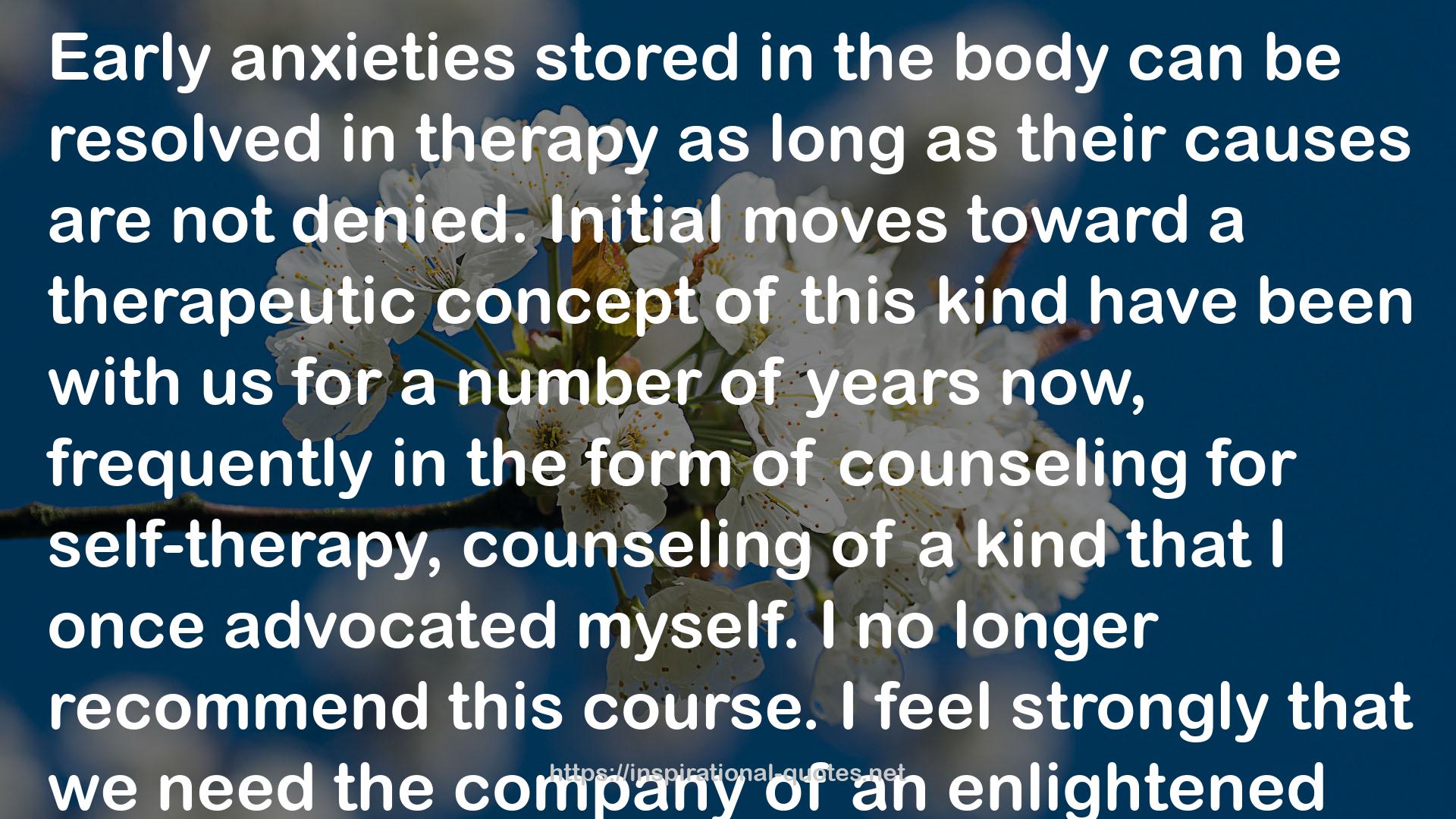" Early anxieties stored in the body can be resolved in therapy as long as their causes are not denied. Initial moves toward a therapeutic concept of this kind have been with us for a number of years now, frequently in the form of counseling for self-therapy, counseling of a kind that I once advocated myself. I no longer recommend this course. I feel strongly that we need the company of an enlightened witness to embark on the journey. Unfortunately, it is rare for therapists to have enjoyed such company in their own training. I am only too well aware of the various forms of anxiety assailing therapists, their fear of hurting their parents if they dare to face their own childhood distress head on and without embellishment, and the resultant reluctance to support their patients fully in their search. But the more we write and talk on the subject, the sooner this state of affairs will change and the anxieties lose some of their power over us. In a society with a receptive attitude toward the distress of children, none of us will be alone with our histories. Therapists will be more inclined to forsake Freud’s principle of neutrality and to take the side of the children their clients once were. "
― Alice Miller , The Truth Will Set You Free: Overcoming Emotional Blindness and Finding Your True Adult Self
